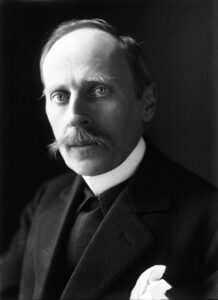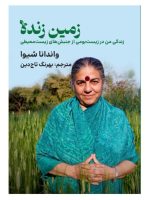
Romain Rolland (French: [ʁɔlɑ̃]; 29 January 1866 – 30 December 1944) was a French dramatist, novelist, essayist, art historian and mystic who was awarded the Nobel Prize for Literature in 1915 “as a tribute to the lofty idealism of his literary production and to the sympathy and love of truth with which he has described different types of human beings”.
He was a leading supporter of Josef Stalin in France and is also noted for his correspondence with and influence on Sigmund Freud.
Rolland was born in Clamecy, Nièvre into a family that had both wealthy townspeople and farmers in its lineage. Writing introspectively in his Voyage intérieur (1942), he sees himself as a representative of an “antique species”. He would cast these ancestors in Colas Breugnon (1919).
Accepted to the École normale supérieure in 1886, he first studied philosophy, but his independence of spirit led him to abandon that so as not to submit to the dominant ideology. He received his degree in history in 1889 and spent two years in Rome, where his encounter with Malwida von Meysenbug–who had been a friend of Nietzsche and of Wagner–and his discovery of Italian masterpieces were decisive for the development of his thought. When he returned to France in 1895, he received his doctoral degree with his thesis Les origines du théâtre lyrique moderne. Histoire de l’opéra en Europe avant Lulli et Scarlatti (The origins of modern lyric theatre. A History of Opera in Europe before Lully and Scarlatti). For the next two decades, he taught at various lycées in Paris before directing the newly established music school of the École des Hautes Études Sociales from 1902–11. In 1903 he was appointed to the first chair of music history at the Sorbonne, he also directed briefly in 1911 the musical section at the French Institute in Florence.
His first book was published in 1902, when he was 36 years old. Through his advocacy for a ‘people’s theatre’, he made a significant contribution towards the democratization of the theatre. As a humanist, he embraced the work of the philosophers of India (“Conversations with Rabindranath Tagore” and Mohandas Gandhi). Rolland was strongly influenced by the Vedanta philosophy of India, primarily through the works of Swami Vivekananda.
A demanding, yet timid, young man, he did not like teaching. He was not indifferent to youth: Jean-Christophe, Olivier and their friends, the heroes of his novels, are young people. But with real-life persons, youths as well as adults, Rolland maintained only a distant relationship. He was first and foremost a writer. Assured that literature would provide him with a modest income, he resigned from the university in 1912.[citation needed]
Romain Rolland was a lifelong pacifist. He was one of the few major French writers to retain his pacifist internationalist values; he moved to Switzerland. He protested against the first World War in Au-dessus de la mêlée [fr] (1915), Above the Battle (Chicago, 1916). In 1924, his book on Gandhi contributed to the Indian nonviolent leader’s reputation and the two men met in 1931. Rolland was a vegetarian.
In May 1922 he attended the International Congress of Progressive Artists and signed the “Founding Proclamation of the Union of Progressive International Artists”.
In 1928 Rolland and Hungarian scholar, philosopher and natural living experimenter Edmund Bordeaux Szekely founded the International Biogenic Society to promote and expand on their ideas of the integration of mind, body and spirit.[citation needed] In 1932 Rolland was among the first members of the World Committee Against War and Fascism, organized by Willi Münzenberg. Rolland criticized the control Münzenberg assumed over the committee and was against it being based in Berlin.
Rolland moved to Villeneuve, on the shores of Lac Léman (Lake Geneva) to devote himself to writing. His life was interrupted by health problems, and by travels to art exhibitions. His voyage to Moscow (1935), on the invitation of Maxim Gorky, was an opportunity to meet Joseph Stalin, whom he considered the greatest man of his time. Rolland served unofficially as ambassador of French artists to the Soviet Union. Although he admired Stalin, he attempted to intervene against the persecution of his friends. He attempted to discuss his concerns with Stalin, and was involved in the campaign for the release of the Left Opposition activist and writer Victor Serge and wrote to Stalin begging clemency for Nikolai Bukharin. During Serge’s imprisonment (1933–1936), Rolland had agreed to handle the publications of Serge’s writings in France, despite their political disagreements.
Romain Rolland with Joseph Stalin, 1935
In 1937, he came back to live in Vézelay, which, in 1940, was occupied by the Germans. During the occupation, he isolated himself in complete solitude. Never stopping his work, in 1940, he finished his memoirs. He also placed the finishing touches on his musical research on the life of Ludwig van Beethoven. Shortly before his death, he wrote Péguy (1944), in which he examines religion and socialism through the context of his memories. He died on 30 December 1944 in Vézelay.
In 1921, his close friend the Austrian writer Stefan Zweig published his biography (in English Romain Rolland: The Man and His Works). Zweig profoundly admired Rolland, whom he once described as “the moral consciousness of Europe” during the years of turmoil and War in Europe. Zweig wrote at length about his friendship with Rolland in his own autobiography (in English The World of Yesterday).
Victor Serge was appreciative of Rolland’s interventions on his behalf but ultimately thoroughly disappointed by Rolland’s refusal to break publicly with Stalin and the repressive Soviet regime. The entry for 4 May 1945, a few weeks after Rolland’s death, in Serge’s Notebooks: 1936-1947 notes acidly that “At age seventy the author of Jean-Christophe allowed himself to be covered with the blood spilled by a tyranny of which he was a faithful adulator.”
Hermann Hesse dedicated Siddhartha to Romain Rolland “my dear friend”.
(From: Wikipedia)











